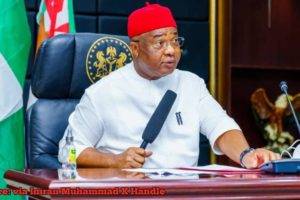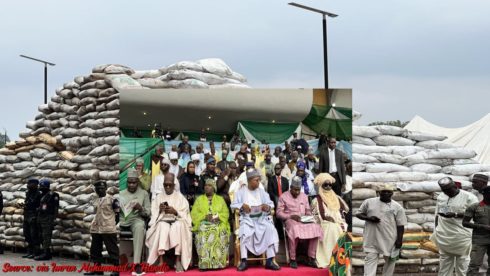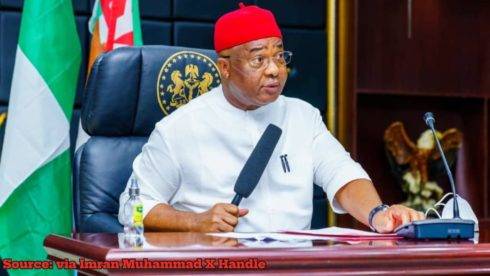In a bid to revitalize Kaduna State’s agricultural sector, Governor Uba Sani launched an extensive fertilizer distribution program on Monday. The initiative, inaugurated at Murtala Square in Kaduna, will see the distribution of 500 trucks filled with fertilizer, amounting to approximately 15,000 metric tonnes, to smallholder farmers across all 23 Local Government Areas of the state.
This ambitious program aims to provide 240,000 bags of fertilizer at no cost to 120,000 smallholder farmers, ensuring each beneficiary receives two bags. The scale of this distribution underscores the state government’s commitment to agricultural development and food security in Kaduna State.
Governor Uba Sani: Empowering 120,000 Smallholder Farmers: A Game-Changing Initiative
Governor Uba Sani emphasized that this initiative is a clear demonstration of the state government’s dedication to rejuvenating the agricultural sector, which is a crucial contributor to Kaduna State’s economy. By targeting 120,000 smallholder farmers, the program aims to have a widespread impact on agricultural productivity across the state.
The decision to provide two bags of fertilizer per farmer free of charge is expected to significantly reduce input costs for these smallholder farmers. This support could lead to increased crop yields and improved livelihoods for thousands of farming families throughout Kaduna State.
Governor Uba Sani: Agriculture, The Backbone of Kaduna State’s Economy
During the launch, Governor Uba Sani highlighted the pivotal role of agriculture in Kaduna State’s economy. He noted that the sector accounts for a substantial 42.81% of the state’s Gross Domestic Product and provides employment for 42% of the total workforce.
These statistics underscore the critical importance of agriculture to Kaduna State’s economic well-being and employment landscape. By investing in this sector, the state government aims to stimulate economic growth, create jobs, and enhance food security for its residents.
Kaduna State: A Major Player in Nigeria’s Agricultural Landscape
Governor Uba Sani proudly highlighted Kaduna State’s significant contributions to Nigeria’s agricultural output. The state ranks first in ginger production, contributing an impressive 76.4% to the national output. Additionally, Kaduna leads in maize production, accounting for 7.4% of the national yield, and holds second place in soybeans production with a 9.4% contribution.
These achievements position Kaduna State as a key player in Nigeria’s agricultural sector. The fertilizer distribution program is expected to further boost these production figures, potentially increasing the state’s contributions to national food security and agricultural exports.
Substantial Budget Allocation Reflects Commitment to Agricultural Growth
In his address, Governor Uba Sani revealed that the 2024 Budget of Kaduna State allocates N22.54 billion to the agricultural sector. This allocation represents a significant increase from previous years, reflecting the administration’s strong commitment to developing a vibrant agricultural ecosystem.
The substantial budget allocation, coupled with initiatives like the fertilizer distribution program, demonstrates a comprehensive approach to agricultural development in Kaduna State. This strategy aims to address various aspects of the agricultural value chain, from input provision to production and marketing.
Governor Uba Sani: Cultivating a Vibrant Agricultural Ecosystem
Governor Uba Sani’s launch of this massive fertilizer distribution program marks a significant milestone in Kaduna State’s journey towards agricultural revitalization and food security. By directly supporting smallholder farmers, who form the backbone of the state’s agricultural sector, this initiative has the potential to transform rural economies and boost overall agricultural productivity.
As the program rolls out across the 23 Local Government Areas, its impact on crop yields, farmer incomes, and food availability will be closely watched. If successful, this model of direct support to smallholder farmers could serve as a blueprint for other states in Nigeria and beyond, contributing to broader efforts to achieve food security and sustainable agricultural development.
Table of Contents
Discover more from OGM News NG
Subscribe to get the latest posts sent to your email.













